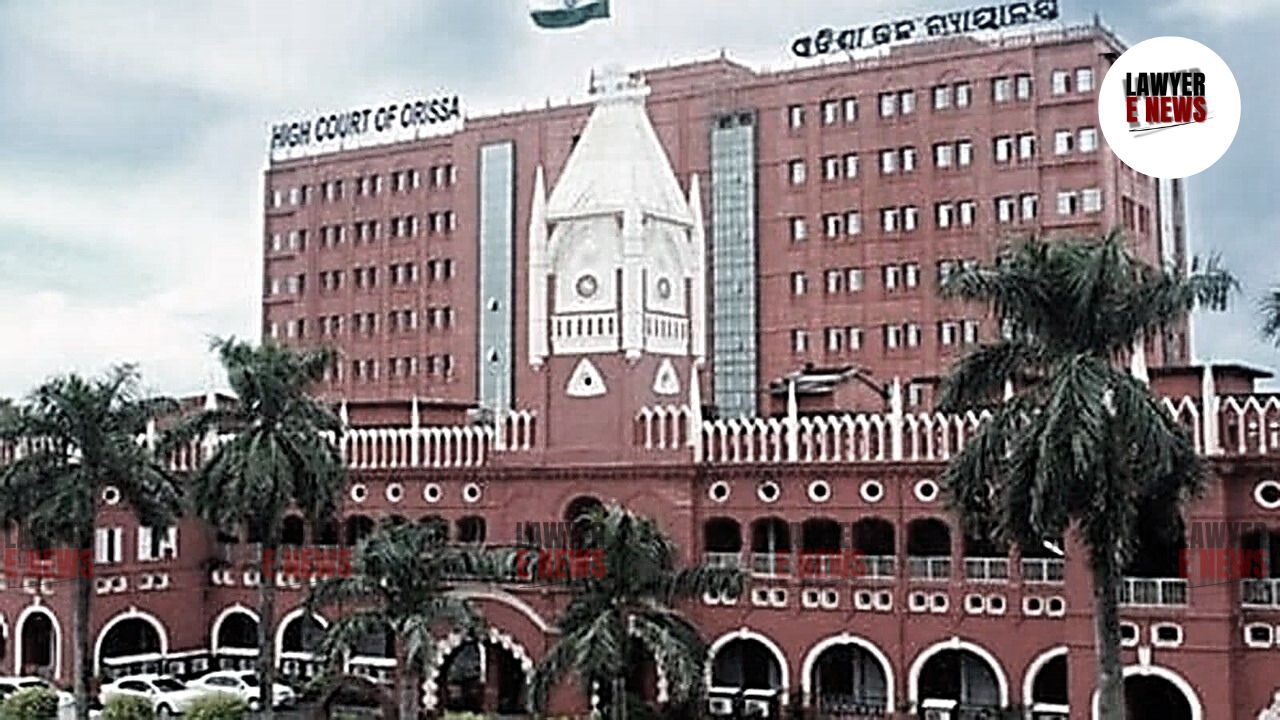-
by Admin
15 February 2026 5:35 AM



In a significant judgment delivered on November 20, 2024, the Orissa High Court quashed the orders of the Juvenile Justice Board (JJB), Nayagarh, and the Children’s Court, Nayagarh, which had denied bail to a Child in Conflict with Law (CICL). The Court, presided over by Justice A.C. Behera, allowed the bail application of the juvenile and emphasized that bail for children under the Juvenile Justice (Care and Protection of Children) Act, 2015 (JJ Act) is the rule, and refusal is an exception.
The case arose after the CICL was detained on August 8, 2024, in connection with Chandpur Police Station Case No. 142 of 2024. The JJB, Nayagarh, rejected the CICL’s bail application on August 16, 2024, citing concerns in the social investigation report. The JJB noted that the CICL’s parents were not providing proper guidance and stated that releasing the CICL on bail would expose him to potential danger and defeat the ends of justice. The Additional Sessions Judge-cum-Children’s Court, Nayagarh, later upheld this decision in Criminal Appeal No. 17/39 of 2024, echoing concerns over the child’s parental care and the likelihood of further risks.
The High Court, in its revision jurisdiction under Section 102 of the JJ Act, set aside these orders, finding that the concerns raised in the social investigation report were speculative and unsupported by concrete evidence. Justice Behera reiterated that under Section 12 of the JJ Act, a juvenile must be granted bail unless there are compelling reasons to believe that releasing the child would lead to association with known criminals, expose the child to moral or physical danger, or defeat the ends of justice. The Court found no evidence of these risks in the CICL’s case.
The judgment heavily criticized the use of stigmatizing and accusatory language in the orders of the JJB and the appellate court, stating that such language contravened the principles of the JJ Act, particularly Section 3(viii), which mandates the use of non-adversarial semantics when dealing with children. Justice Behera stressed that decisions concerning juveniles must adhere to a reformative approach, prioritizing the best interest of the child as outlined in Sections 3(i) and 3(iv) of the JJ Act.
The High Court also addressed the evidentiary value of the social investigation report, observing that it lacked any substantive findings to justify the denial of bail. The report failed to show that the CICL had a history of bad associations, a likelihood of repeating the offense, or a risk of absconding. The Court further noted that the CICL’s father had sworn an affidavit to take responsibility for the child and ensure proper guidance, which was ignored by the lower courts.
Justice Behera referred to several precedents, including the Supreme Court’s Suo Motu Writ Petition (Civil) No. 04 of 2020, which mandates the release of juveniles on bail unless valid reasons are recorded under the JJ Act. Other cases such as Amit Yadav v. State of U.P. and Shahnawaz Hussain v. State of Jharkhand were also cited to emphasize that the refusal of bail should be based on clear and imminent risks, not presumptions.
The High Court directed the JJB to release the CICL on bail with necessary conditions, including an undertaking from the CICL’s father to ensure proper care and prevent bad associations. It further highlighted the importance of avoiding stigmatizing language in judicial orders and ensuring that decisions align with the JJ Act’s rehabilitative objectives.
This judgment reinforces the principle that the Juvenile Justice Act is a reformative legislation aimed at the reintegration of children into society rather than punitive measures. By overturning the denial of bail, the Orissa High Court has reaffirmed the legal and moral obligation to protect the rights and well-being of children in conflict with the law.
The decision stands as a reminder to courts to adhere to the principles of the JJ Act while ensuring that procedural safeguards and the child’s best interest are upheld at every stage of the legal process.
Date of decision: 20/11/2024
